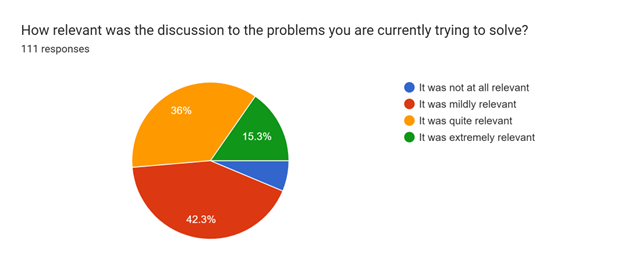Informal Poll of SC22 Conference Attendees Suggests a Bright Future for Composability
More than 40% of attendees believe that HPC needs composability now.
Dallas, Texas, November 15, 2022 – GigaIO, the leading provider of workload-defined infrastructure without compromise for HPC + AI workflows, organized a unique panel discussion that was held today at SC22: “Smackdown! Does HPC Need Composabilty Now?” The panel was organized like a debate, with two teams of five debating whether HPC needs composability now. More than 40% of attendees agreed with that statement, with others noting that HPC needs composability when the technology matures (but not necessarily now). As one attendee submitted in an anonymized written survey after the panel, “Composability is not a question of “if”, it is a question of “when.”
Many interesting points were raised in the debate, which included notable HPC practitioners from across academia, government, and industry (see full lineup here). “This experience was completely different than any other SC panel that I’ve ever seen,” said Pro Team Leader Dan Olds, Chief Research Officer of Intersect360 Research. “It was a lot of fun, we put out a lot of information during the debate, and gave the audience some things to chew on.” That was certainly the case, with more than 50% of the audience noting that the conversation either formed or changed their opinion.
The Pro team argued that composability is necessary for optimal configuration for workloads, as there is no “one true” ratio of GPU-CPU to optimize all workloads. Composability allows users to select the hardware their workloads actually need, dynamically and beyond physical server boundaries. Further, the Pro Team noted that the trend to application-optimized architectures reduces time to insight faster than Moore’s Law, and that HPC needs to take advantage of this.
The Con team’s arguments centered around the idea that the memory component of composability slows systems down, and that one doesn’t necessarily need different configurations. “While CXL’s ability to pool memory is the bright shiny object many are focused on, that is some years away, said Jacqueline Arsivaud, Vice President, Marketing, GigaIO. “In the meantime, disaggregating GPUs and other accelerators, not memory, is the clear winning use case for today.”
At the conclusion of the panel, many agreed that while composability is not for everyone, it is for some people. Composability is not a panacea, and not for every system or even for every situation, but it is extremely useful in certain cases. The debate was timely, as just over 50% of attendees noted it was either “quite” or “extremely” relevant to the problems they are currently trying to solve.
For more on composability, please stop by the GigaIO booth (#539) at SC22 or learn more here.
About GigaIO
GigaIO provides workload-defined infrastructure through its dynamic memory fabric, FabreX, which seamlessly composes rack-scale resources and integrates natively into industry-standard tools. FabreX lets customers build impossible servers for HPC + AI workflows — from storage to accelerators to memory — at a fraction of cloud TCO, by optimizing the utilization and efficiency of their existing hardware, allowing them to run more workloads faster at lower cost through higher utilization of resources and more agile deployment. Visit www.gigaio.com, or follow on Twitter and LinkedIn.
Contact
Danica Yatko 760-487-8395
danica@xandmarketing.com



